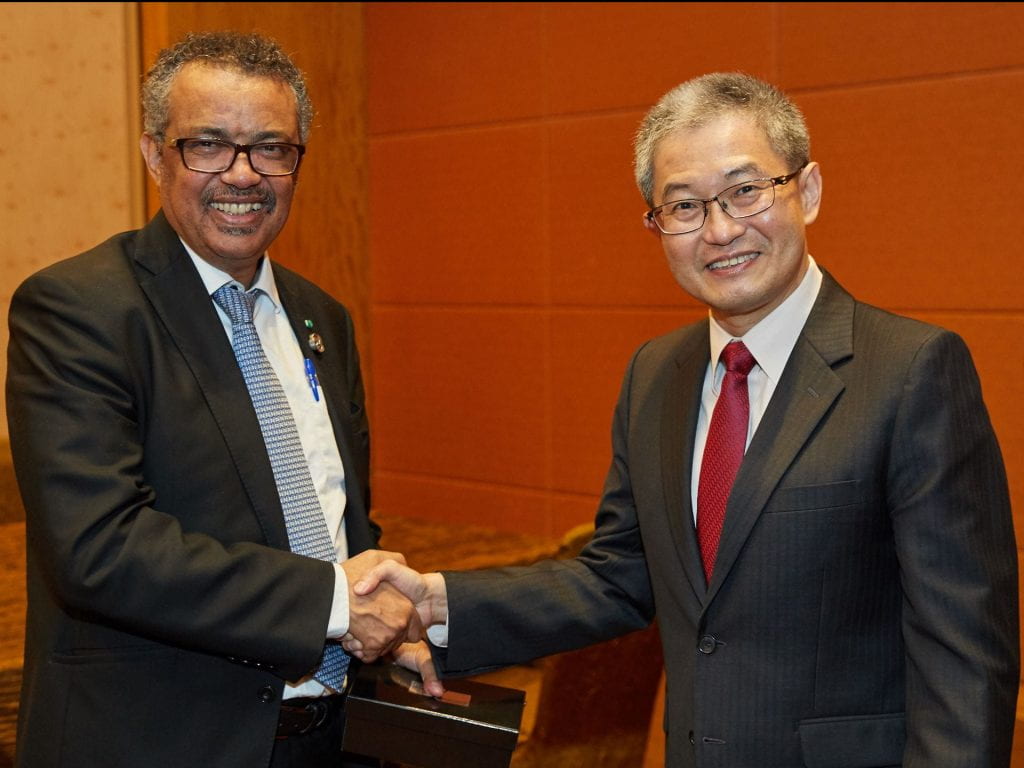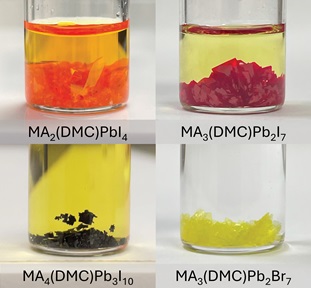Staying ahead in a changing world
Establishing global partnerships in healthcare, risk management and computing.
 Dr Tedros Adhanom Ghebreyesus, Director-General of WHO, and NTU Deputy President and Provost Prof Ling San at the opening of WHO’s first Collaborating Centre for Digital Health and Health Education. Credit: NTU.
Dr Tedros Adhanom Ghebreyesus, Director-General of WHO, and NTU Deputy President and Provost Prof Ling San at the opening of WHO’s first Collaborating Centre for Digital Health and Health Education. Credit: NTU.
Towards its goal of digitalising healthcare and supporting the training of healthcare professionals worldwide, the World Health Organisation (WHO) has designated the Centre for Population Health Sciences (CePHaS), a centre in NTU’s Lee Kong Chian School of Medicine, as its first Collaborating Centre for Digital Health and Health Education.
Preceded by five years of collaborative work with the WHO, the initial designation as collaborating centre will last four years. During this term, Assoc Prof Josip Car, Director of CePHaS and the WHO Collaborating Centre, will lead a team that will work with WHO and Singapore’s Ministry of Health on the use of digital health tools for the education and training of the health workforce.
——————
NTU’s Institute of Catastrophe Risk Management (ICRM) and the ASEAN Secretariat have jointly launched a three-year disaster risk management and risk financing plan to address rising economic costs due to natural catastrophes in Southeast Asia. This is under the ASEAN Disaster Risk Financing and Insurance Phase 2 (ADRFI-2) programme, which supports ASEAN’s efforts to strengthen the disaster risk resilience of the region. The plan of action as developed by ICRM and ASEAN Secretariat aims to equip member states with risk management and transfer capabilities, which will enable them to overcome financial burdens caused by disasters.
ICRM will lead two of the plan’s strategic areas: risk assessment and risk advisory. ICRM’s data scientists will develop a high-resolution natural catastrophe database for holistic risk assessments, analyse the insurance and reinsurance needs of ASEAN countries, and design innovative risk-transfer tools and cost-effective disaster risk financing strategies.
——————
If we are to realise a future of autonomous vehicles and artificial intelligence-enhanced smart systems and applications related to the Internet of Things, we will need access to high-performance memory devices.
In a S$120 million (US$88 million) tie-up with semiconductor manufacturer GlobalFoundries Singapore, NTU will advance the next-generation of non-volatile memory technology. Supported by Singapore’s Industry Alignment Fund-Industry Collaboration Projects scheme, the NTU-GF Singapore Research Partnership—one of Singapore’s largest corporate research partnerships with academia to date—leverages GlobalFoundries Singapore’s advanced silicon transistor technology.
As part of the collaboration, NTU’s Prof Lew Wen Siang will lead a joint project with GlobalFoundries called “Advanced ReRAM technology for embedded systems”. The project aims to establish a new class of mainstream non-volatile memory technology called resistive switching random-access memory (ReRAM). Commonly used in on-chip microcontrollers and embedded systems, ReRAM offers many advantages over conventional memory technology, including increased durability, higher speed and lower power consumption.



.tmb-listing.jpg?Culture=en&sfvrsn=29c7e020_1)
.tmb-listing.jpg?Culture=en&sfvrsn=ab6472c8_1)
.tmb-listing.jpg?Culture=en&sfvrsn=332749b0_1)
.tmb-listing.jpg?Culture=en&sfvrsn=55153609_1)
